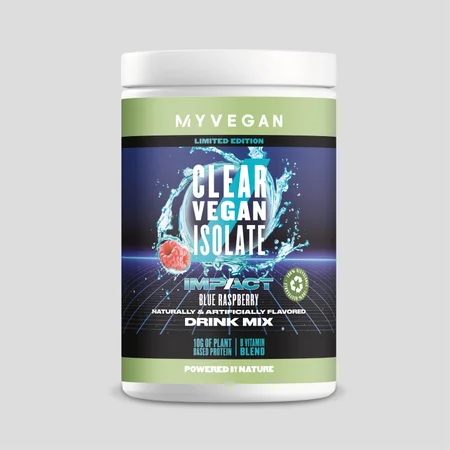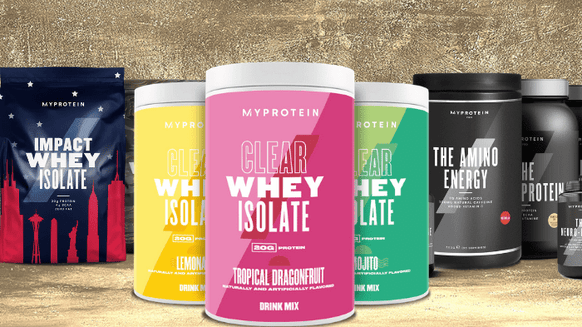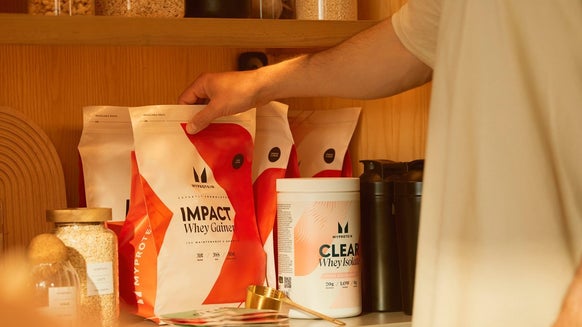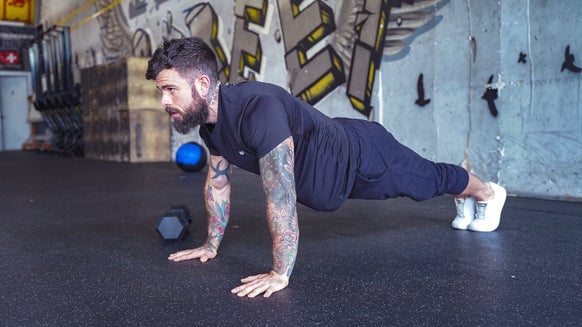
We have heard it many times before – “Make sure you’re adequately hydrated, keep drinking water, aim for 2L per day … or is it 6-8 glasses?.” Hydration guidelines can be confusing to say the least. The human body’s level of hydration is constantly being challenged through water lost through sweating, especially when exercising.1 Replacing this fluid loss is especially important in the general population and even more so in athletes.
Hydration during sporting activity is a key indicator of health in athletes.2 What we do know is that dehydration decreases athletic performance and can be a risk to health when done under temperature stress.3 Because of this, you really want to be finding the most effective way to hydrate and we know that simply chugging water can be pretty boring. So, what about powdered drinks?

What are powdered drinks?
Powdered drinks are designed to combine the formulated powder and water to form a liquid that you can drink.
Powdered drinks come in an abundance of flavours in styles ranging from Whey Protein shakes in the milky version to Clear Whey Protein powders mixed with water.
What’s great is that the research shows us that hypertonic drinks (those with added amino acids and sugars) aids muscle recovery and improves immunity.4 After exercise this is especially true with powdered hypertonic drinks that contain high biological value proteins such as branched chain amino acids and glutamine as contained in *Clear Whey Protein*. 5
Do powdered drinks count towards your hydration needs?
Powders dissolve quickly in water after mixing. So long as you mix your drink with water instead of milk or juice, your powdered drink can be counted towards your water intake. The World Health Organization recommends that on average, a female requires a whopping 2.7L of liquid and the average man 3.7L of water.6 And this is just to meet your body’s needs — never mind the sweat experienced when working out. Sound like a big task? You’re not alone, but powdered drinks will make it that much easier to reach your target.

It’s still light enough to not upset your stomach
There’s no denying that eating or drinking too much before a workout can seriously throw you off. What you don’t want is to be sipping on your powdered drink and experiencing an upset stomach — and that’s why *clear whey protein* is great!
You always want to be ensuring that your drink immediately before, during, and post exercise is low in fat and fibre to decrease the risk of an upset stomach. This makes *clear whey protein* the perfect candidate for the job. With only 0.1g amount of fat per serving, that won’t be something you need to worry about.
Should we consider a powdered drink with added protein?
Absolutely YES! For athletes the recommended range of protein is from 1.2-2g/kg7 depending on what your goals are. Reaching that can be hard when you’re a 100kg athlete needing to consume 200g of protein per day. So, to make that easier, consuming protein whilst hydrating is a double win.
Take home message
If you’re struggling to meet your targets of hydration as well as protein throughout the day, consuming a powdered protein drink may be the right solution for you. We’re all for a convenient way to maintain lean gains and hydrating all in one go.

1. Belval, L. N., Hosokawa, Y., Casa, D. J., Adams, W. M., Armstrong, L. E., Baker, L. B., Burke, L., Cheuvront, S., Chiampas, G., González-Alonso, J., Huggins, R. A., Kavouras, S. A., Lee, E. C., McDermott, B. P., Miller, K., Schlader, Z., Sims, S., Stearns, R. L., Troyanos, C., & Wingo, J. (2019). Practical Hydration Solutions for Sports. Nutrients, 11(7), 1550.
2. Noakes TD. Commentary: role of hydration in health and exercise. BMJ. 2012;345:e4171
3. Murray B. Hydration and physical performance. J Am Coll Nutr. 2007;26(5 Suppl):542S-548S.
4. Massey LK, Berg TA. The effect of dietary caffeine on urinary excretion of calcium, magnesium, phosphorus, sodium, potassium, chloride and zinc in healthy males. Nutr Res. noviembre de 1985;5(11):1281-4.
5. Massey LK, Berg TA. The effect of dietary caffeine on urinary excretion of calcium, magnesium, phosphorus, sodium, potassium, chloride and zinc in healthy males. Nutr Res. noviembre de 1985;5(11):1281-4.
6. Rosinger, A., & Herrick, K. A. (2016). Daily Water Intake Among US Men and Women: 2009-2012. US Department of Health and Human Services, Centers for Disease Control and Prevention, National Center for Health Statistics.
7. Vitale, K., & Getzin, A. (2019). Nutrition and Supplement Update for the Endurance Athlete: Review and Recommendations. Nutrients, 11(6), 1289.









